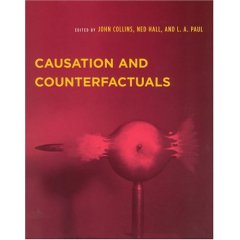I’m responding tonight to a talk by Wendy McElroy entitled Don’t Vote — Its Immoral, and it Wastes Your Time. I haven’t yet read the talk, so like everyone else I am trying to work out my response with a bit of guesswork (I’m going by what she says here, and using some license to work out my own thoughts). I’ll post my own comments later, but for the moment, I’m dismayed to see the reaction the publicity for her talk has provoked. Here is my colleague Lester Hunt’s account (he has borne the brunt of it) and here is the article from the local paper, followed by a remarkably anti-intellectual set of comments. There’s nothing like this sort of reaction to disarm a respondent — I find myself wanting to defend her in my comments. But it’s ok, I won’t.
I should be prepping for class, but I want to add an alternative perspective to a question raised about Google’s popularity. The Freakonomics blog features an interesting Q&A with Hal Varian today, I recommend heading over to check out how Google’s chief economist answers some questions submitted by readers last week.
The Official Google Blog takes one of the questions and posts an expanded response to it. The question:
How can we explain the fairly entrenched position of Google, even though the differences in search algorithms are now only recognizable at the margins?
Varian addresses three possible explanations: supply-side economies of scale, lock-in, and network effects. He dismisses all of these (see the post for details) and then goes on to say that it’s about Google’s superior quality in search that makes it as popular as it is.
I don’t buy it, especially the dismissal of the lock-in factor. [click to continue…]
I didn’t find entries on Sir Alec Clegg (a brief mention here), the late Gordon Hainsworth, Sir Peter Newsam, or my dad. (Clegg was only one of the heroes of my childhood home — I am glad to see that the other has a nice long entry). There is, indeed, an entry on Otto Clarke but his entry is far, far, shorter and less informative than the entry on his considerably less accomplished son. (My dad’s non-entry is infinitely shorter than the one for his considerably less accomplished son, which JQ nicely salvaged from my daughter’s attempted sabotage).
I’m not really criticising the wikipedians, but the lacunae do show up a problem, which is that there will be a tendency for people whose accomplishments, however considerable, precede wikipedia’s birth to be much less well documented than those whose accomplishments, however minor, postdate its birth. Any more names of the missing?
“Dani Rodrik”:http://rodrik.typepad.com/dani_rodriks_weblog/2008/02/mr-kristol-you.html catches up with Bill Kristol a couple of decades later …
I have waited a really long time to do this, and I am happy that Bill Kristol finally gave me an opportunity with his column in today’s New York Times. … he was my dreaded instructor long ago in two of the classes that I took as a Harvard undergraduate … In each course, we had to write short papers once every couple of weeks. I can say that my performance on these papers, which Kristol graded, was fairly consistent. The essay on Machiavelli? Here is a C-. The essay on the Federalist Papers? Here is a C. John Stuart Mill? Well, how about, yes you guessed it, another C. You can say that Kristol did his best to discourage me from pursuing a career in political science.
… He walked into the classroom and his first words were: “Hello, my name is Mr. Kristol.” To underscore the point that he was that, and not Bill or any other friendly appellations by which we students may have chosen to address him, he went to the board and wrote “Mr. Kristol.” I may have been a poorly adjusted Turk in my first year in the U.S., but this still struck me as odd. … Well, Mr. Kristol’s column today takes aim at Barack (and Michelle) Obama, and does so quite unfairly in my view. … What caught my attention was this passage: [where Kristol says that in almost every empirical respect, American lives have in fact gotten better over the last quarter-century.] … Really? … for a high-school graduate, the odds that his compensation would have fallen by more than 10% is 50-50. Note that even college graduates have not seen any income gains since around 2000. … some groups have definitely been left worse off–not just in relative but also in absolute terms. So statistics aside, who do you think has a better sense of what has happened to “regular folk” since 1980? Michelle Obama or Mr. Kristol?
 Amazon just suggested I should buy Causation and Counterfactuals edited by Collins, Hall and Paul. Maybe this means the Amazon recommendation engine is broadening its scope, and we’ll soon see suggestions like, “People who bought this book also married …”
Amazon just suggested I should buy Causation and Counterfactuals edited by Collins, Hall and Paul. Maybe this means the Amazon recommendation engine is broadening its scope, and we’ll soon see suggestions like, “People who bought this book also married …”